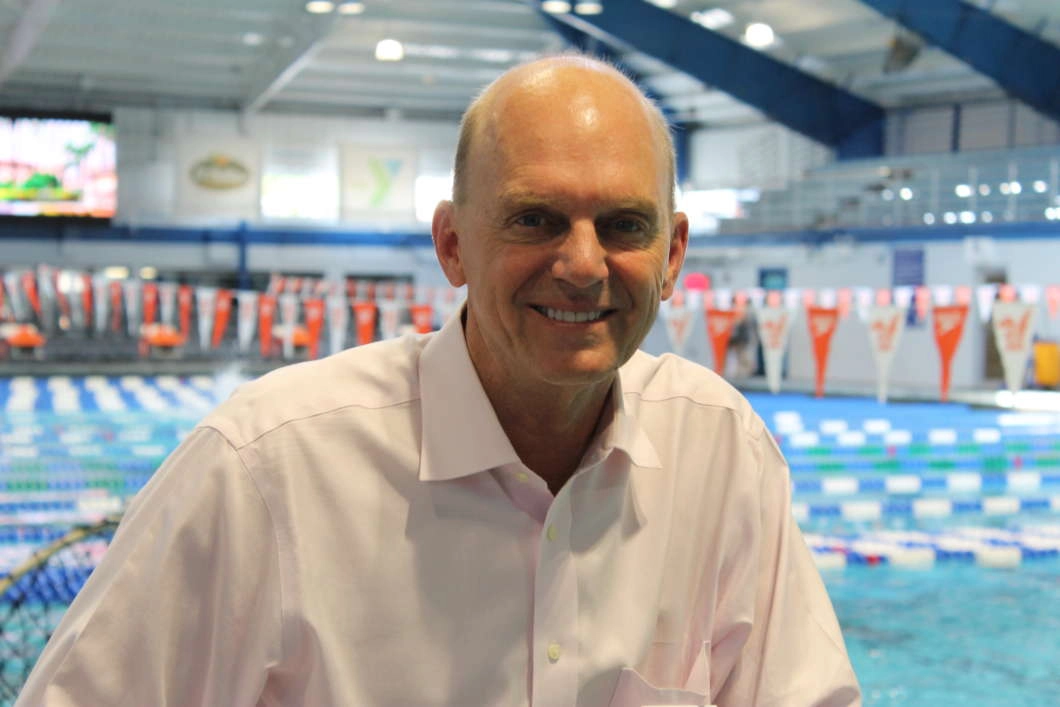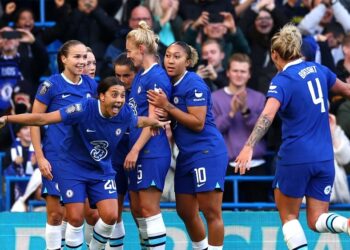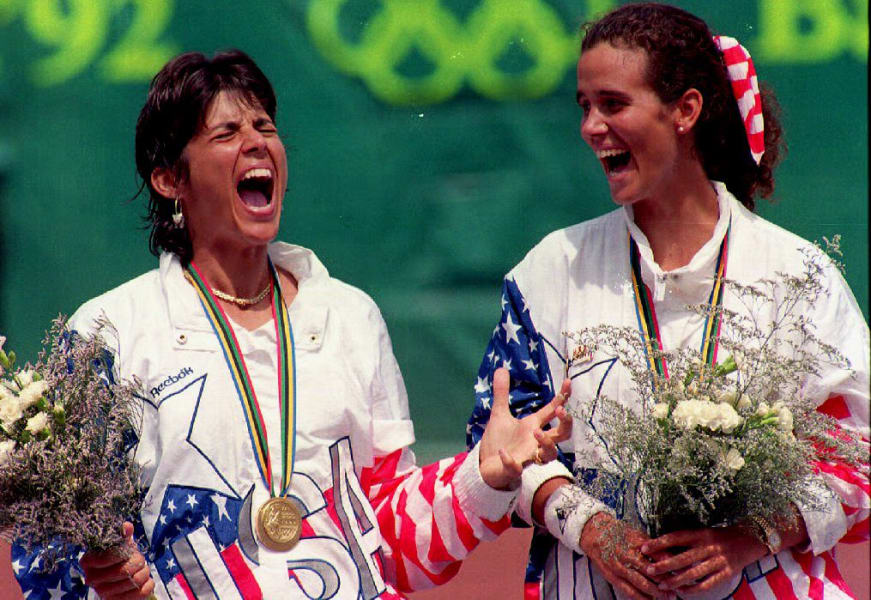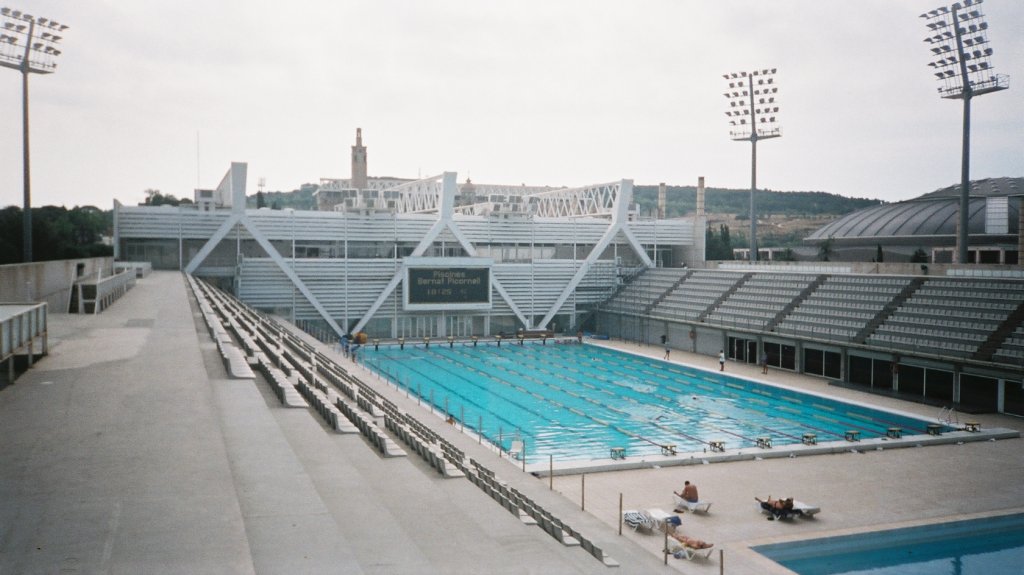By: Zachary Draves
Ambrose “Rowdy” Gaines is known as “Swimming’s Greatest Ambassador” and for good reason. He has done it all and seen it all. Rowdy was a late bloomer to the sport officially starting competitively at the age of 17 in his hometown of Winter Haven, Florida. He eventually earned a scholarship to Auburn University and was slated to compete in the 1980 Moscow Olympics before the official US boycott due to the Soviet Union’s invasion of Afghanistan.
By 1981, Rowdy had broken 10 swimming records and was destined for Olympic greatness. His time eventually came in the 1984 Los Angeles games where he won gold in the 100-meter freestyle and captured two more golds as the anchor for 400 freestyle relay and 400 medley relay.

(Courtesy: Ron Edmonds/Associated Press 1984)
His life out of the pool is just as remarkable as it was in the pool. In 1991, he was diagnosed with Guillain-Barre syndrome, a nerve disorder in which the body’s immune system attacks the vital nerves affecting the brain and spinal cord area. Rowdy took it upon itself to not let it conquer him and in 1996 he attempted to make a comeback at the age of 35 for the Atlanta Olympics. He ultimately decided to pursue his second love which is broadcasting.
He has covered eight Olympics for NBC Sports in total with his first being thirty years ago in Barcelona. Even though it was his debut in that medium, he had been a broadcaster for about four or five years prior including the Goodwill Games.
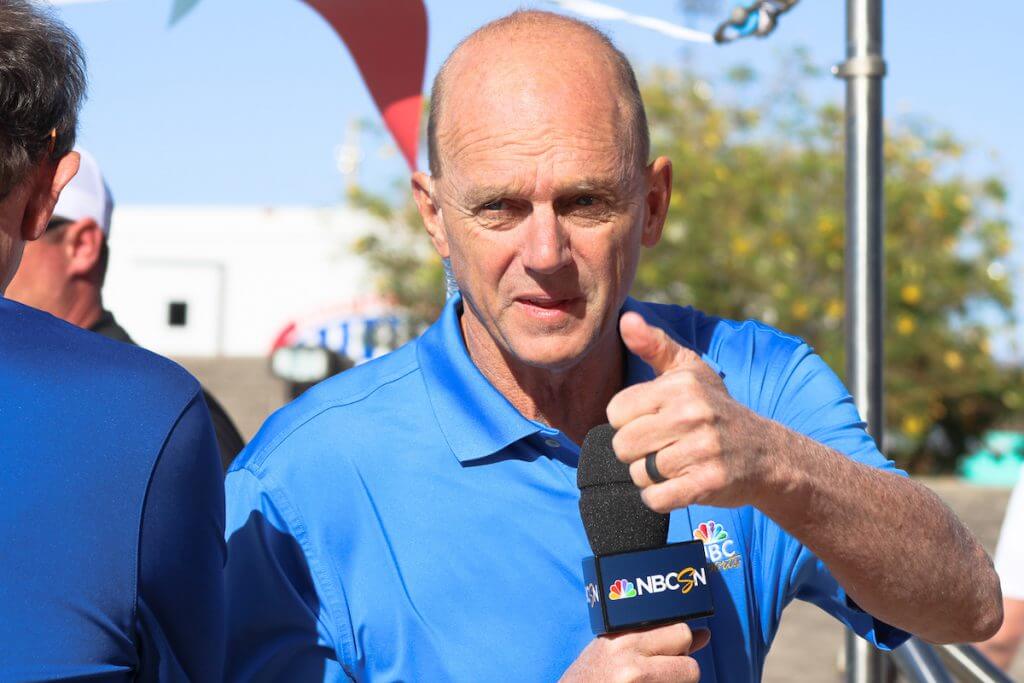
(Courtesy: Swimming World Magazine)
As for Barcelona itself, Rowdy bore witness to the dynamism of the US team who had some interesting individual stories as well as the rest of the world coming into their own.
“I felt it was a great Olympics for being well rounded from a world standpoint,” he said. That was the peak of their careers. The (US) team was made up of a lot of veterans. There were alot who came out of nowhere that did so well. Jeff Rouse did so well. Pablo Morales failed to make the ‘88 team and made a great comeback in ‘92. The US team was really good but it was also when the rest of the world had caught up.”
The US team featured Morales, Rouse, Janet Evans, Jenny Thompson, Dara Torres, Crissy Perham, Summer Sanders, and Keith Frostad. All of whom contributed immensely to the growth and popularity of swimming in the US. It can be argued that Barcelona was the launching pad for the wide range of American talent that continues to this day.
Rowdy also reflects on the environment of Barcelona which he said made it one of the most enjoyable games he has ever been to.
“It was electric,” he said. “It was the most comfortable Olympics I have ever been to. The country was so welcoming to the world.”
It was also the first Olympics he got to enjoy with his wife Judy who got the good fortune of watching the Dream Team do what they did best.
Looking back, Rowdy wants these games to be remembered as a “magical place”.
“From my standpoint, it was perfect in every single way,” he said. “Alot of it has to do with logistics, travel, and transportation. It will always be one that was almost perfect from an overall perspective.”
Aside from the occasional pick pocketer, which Rowdy thankfully wasn’t the victim, it was one of the last Olympics in which security was much more lenient as compared to recent memory. Twenty years after the Munich Massacre and the additional subsequent Cold War banterings, Barcelona was one of the first games where issues around international tensions and security was essentially put on the back burner and the simple joy of experiencing the games was on full display.
As for Rowdy Gaines, the joy he exudes in the pool and in the broadcast booth has never waivered. He continues to live up to his moniker of “Swimming’s Greatest Ambassador” with great distinction. He is to swimming what the late Vin Scully was to baseball. The right man at the right place at the right time to make the right call.


 NFL
NFL